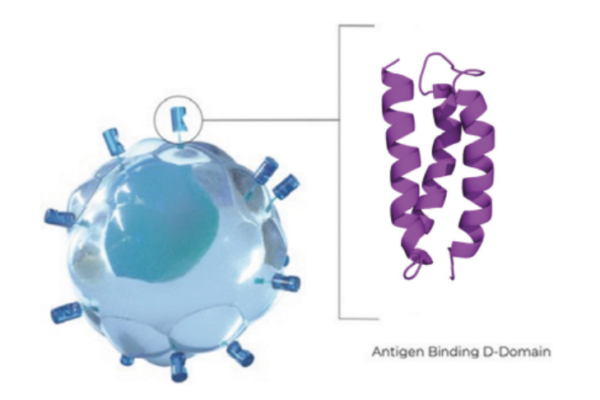
An Arcellx cell therapy at the heart of a $325 million partnership with Gilead Sciences is now under an FDA clinical hold after the report of a patient death in a pivotal multiple myeloma study.
Arcellx said late Monday that it received FDA notification of the clinical hold on June 16. It added that it believes a contributing factor to the death was the limitations of bridging therapy, the treatment given to patients while they are waiting for their personalized cell therapies to be manufactured. Gaithersburg, Maryland-based Arcellx said it is working with the FDA to amend the clinical trial protocol to expand treatment options during this interim period in a way that is consistent with current clinical practice.

With the Rise of AI, What IP Disputes in Healthcare Are Likely to Emerge?
Munck Wilson Mandala Partner Greg Howison shared his perspective on some of the legal ramifications around AI, IP, connected devices and the data they generate, in response to emailed questions.
The interim period and the accompanying bridging therapy is a feature of the class of medicines known as CAR T-therapies. These treatments are made by harvesting a patient’s immune cells and engineering them in a lab to go after a target on cancer cells. This process takes weeks, which is why bridging therapy is needed. But big pharmaceutical companies and upstart biotechs are working on ways to make cell therapy manufacturing faster and more efficient.
The Arcellx therapy, CART-ddBCMA, is engineered to go after BCMA, a protein abundant on multiple myeloma cells. That target is already addressed by multiple myeloma drugs, including two CAR T-therapies currently on the market: Abecma from partners Bristol Myers Squibb and 2seventy Bio, and Carvykti, which stems from the collaboration of Johnson & Johnson and Legend Biotech.
While Arcellx’s therapy goes after the same target as Abecma and Carvykti, it is designed with features intended to improve the therapy. The company’s approach improves the efficiency of transduction, the part of the manufacturing process in which genetic material is transferred into a T cell. The Arcellx therapy is also engineered to hit BCMA without hitting other targets that could cause adverse effects.
Arcellx has touted its drug as best in the class of BCMA-targeting cell therapies. Gilead Sciences bought into the drug’s promise. Last December, the Foster City, California-based drugmaker paid $225 million up front and made a $100 million equity investment in Arcellx to begin a partnership on the biotech’s lead program. Gilead, through its Kite subsidiary, is sharing in costs of developing CART-ddBCMA. Arcellx could earn up to $3.9 billion in milestone payments.
[Update: The following three paragraphs added with analyst comment.] William Blair analyst Sami Corwin spoke with Arcellx management. In a note sent to investors on Wednesday, she said the deceased patient developed symptoms resembling high-grade cytokine release syndrome, an excessive immune response that is a known complication of CAR T-therapy. She added that this patient fit the trial protocol upon enrollment but experienced significant disease progression while on bridging therapy.
Prior to infusion with the Arcellx therapy, the patient developed plasma cell leukemia, Corwin said. According to the clinical trial protocol and similar studies, such patients should have been discontinued from the study because plasma cell leukemia leads to increased cytokine activity that can mirror the symptoms of high-grade cytokine release syndrome. Arcellx management also told Corwin that the patient’s condition progressed rapidly and extensively while on bridging therapy because current clinical practice allows for treatment only with therapies a patient has already been exposed to. Furthermore, management said the site where the patient was treated was less experienced and likely should have had more training and monitoring. William Blair remains confident in the Arcellx cell therapy.
“In our view, if the FDA is amenable to the protocol updates, including increased training and oversight at clinical trial sites, the clinical hold could be lifted within the next three months,” Corwin said. “However, it is unclear at this time if the hold will materially affect the company completing trial enrollment in the second half of 2023.”
In a prepared statement, Arcellx Chairman and CEO Rami Elghandour said expanding bridging therapy regimens is consistent with what’s currently available in clinical practice and is in the best interest of patients. He also said the drug product release characteristics from the Phase 2 study are consistent with those from Phase 1 testing.
To date, 14 clinical sites have been opened and patient enrollment has tracked with expectations. Though Arcellx’s Phase 2 test is under a clinical hold, the FDA cleared Arcellx to dose patients who have already undergone lymphodepletion, the step in which most of a patient’s immune cells are killed off in order to improve the survival chances of the engineered cells that comprise the CAR T-therapy.
Image from Arcellx IPO prospectus














